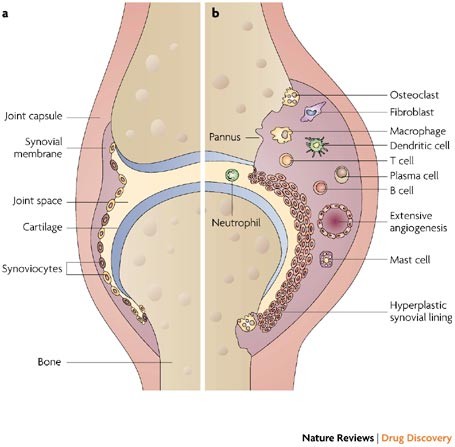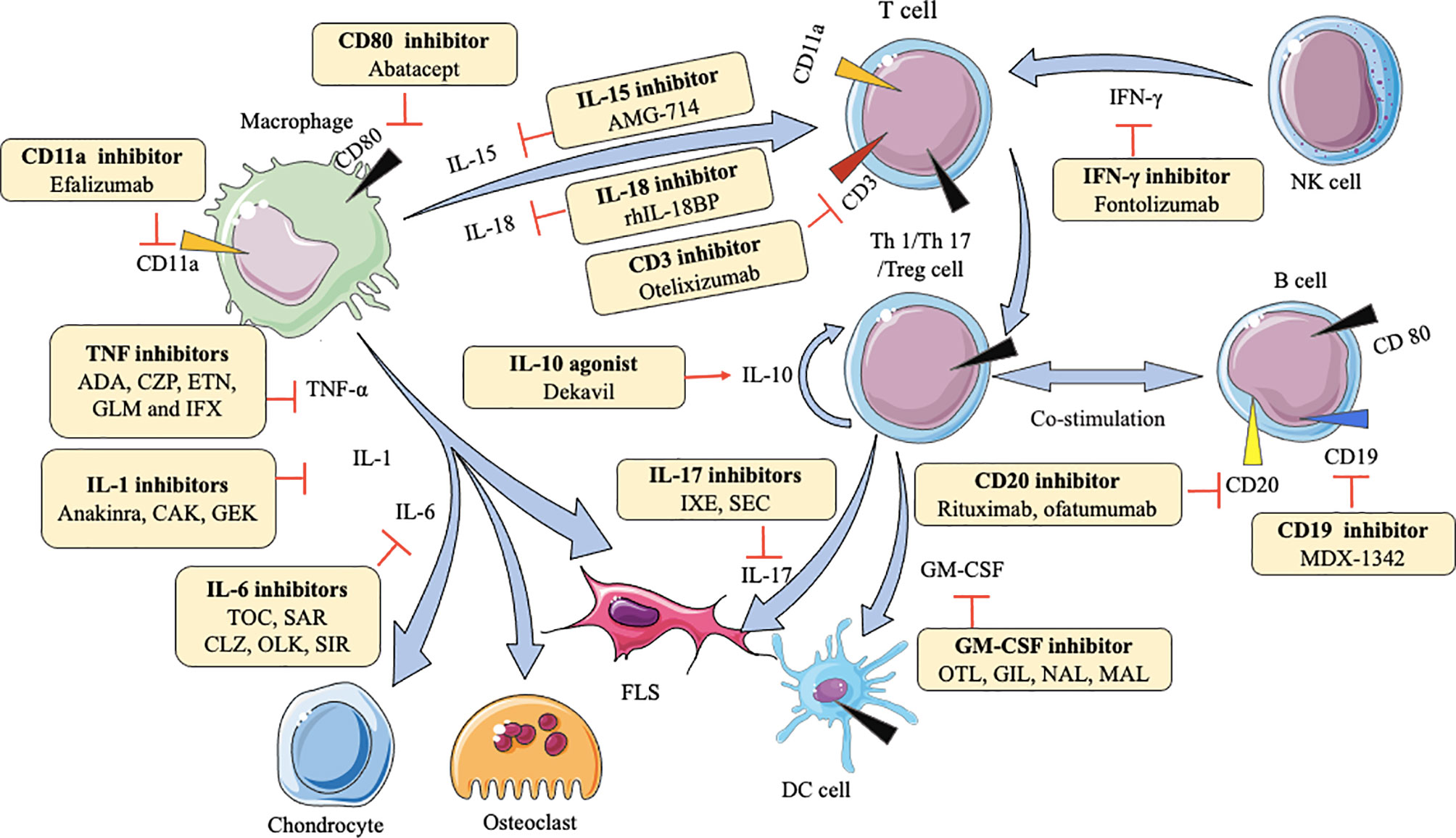Overview of Rheumatoid Arthritis (RA)
Rheumatoid arthritis (RA) is an autoimmune disease that causes inflammation and damage to the joints, resulting in pain and stiffness. It primarily affects the hands, feet, and wrists, but can also affect other body parts such as the lungs and eyes. RA can occur at any age, but it most commonly develops between the ages of 30 and 60 and affects women more than men.
The exact cause of RA is still unknown, but it is thought that both genetic and environmental factors play a role. There is no cure for RA, but various treatments can help manage symptoms and slow its progression.

Introduction to Rheumatoid Arthritis and its Treatment Options
Overview of Rheumatoid Arthritis (RA)
Rheumatoid arthritis (RA) is an autoimmune disease that causes inflammation and damage to the joints, resulting in pain and stiffness. It primarily affects the hands, feet, and wrists, but can also affect other body parts such as the lungs and eyes. RA can occur at any age, but it most commonly develops between the ages of 30 and 60 and affects women more than men.
The exact cause of RA is still unknown, but it is thought that both genetic and environmental factors play a role. There is no cure for RA, but various treatments can help manage symptoms and slow its progression.
Current Treatment options for RA
The goal of RA treatment is to reduce inflammation, relieve pain, prevent joint damage, and improve overall physical function. Treatment options for RA vary depending on the severity of the disease and can include:
- Nonsteroidal anti-inflammatory drugs (NSAIDs) - Over-the-counter and prescription medications that help relieve pain and reduce inflammation.
- Disease-modifying antirheumatic drugs (DMARDs) - Medications that slow down or halt the progression of joint damage in RA.
- Corticosteroids - Powerful anti-inflammatory medications that can be taken orally or injected directly into the affected joint.
- Biologic agents - Medications that target specific immune system proteins involved in the inflammation of RA.
- Physical therapy - Exercise and stretching programs designed to improve joint flexibility and strength.
- Surgery - In severe cases, joint replacement surgery may be necessary.
It is important to note that not all treatment options are suitable for everyone and each has its own set of potential risks and benefits. Consulting with a healthcare provider and forming a treatment plan tailored to the individual's specific case is crucial for effective management of RA symptoms.
In conclusion, RA is a chronic autoimmune disease that primarily affects the joints, but can also affect other parts of the body. Although there is no cure for RA, various treatment options are available to manage symptoms and slow progression. Understanding these treatment options and working with a healthcare provider is crucial for effective management of RA.

Biologic Therapies and the Future of RA Treatment
What are Biologic Therapies?
Biologic therapies are medications made from living cells and are designed to target specific components of the immune system involved in the inflammation and joint damage of RA. Biologics work by blocking the activity of the immune system proteins responsible for causing inflammation. Biologics are typically administered through injection or infusion and are used in combination with other RA medications. Biologics are often prescribed for people who have not responded well to other treatments.
Understanding Bone and Joint Inflammation: Causes, Symptoms, and Treatments
Hip replacement: A surgical procedure that involves replacing a damaged hip joint with an artificial one
Promising Research and Developments for Rheumatoid Arthritis Treatments
Rheumatoid Arthritis in Children: Signs, Symptoms, and Treatment
Overcoming Fatigue and Depression Associated with Rheumatoid Arthritis
The Relationship Between Diet and Rheumatoid Arthritis Management
When to Seek Medical Help for Rheumatoid Arthritis
Key Differences Between Rheumatoid Arthritis and Osteoarthritis
Living with Rheumatoid Arthritis: Coping Strategies and Treatment Options
Understanding the Symptoms and Causes of Rheumatoid Arthritis
Promising Biologic Therapies for RA
Advances in biologic therapies have led to the development of newer drugs that show promise in improving outcomes for people with RA. Some of the most promising biologics for the treatment of RA include:
JAK inhibitors: Janus kinase (JAK) inhibitors block the activity of enzymes called JAKs, which play a crucial role in inflammatory processes. These medications can be taken orally and have been found to be effective in reducing RA symptoms.
Interleukin inhibitors: Interleukins are proteins involved in the immune system's inflammatory response. Interleukin inhibitors block the activity of specific interleukins to reduce inflammation and joint damage.
Biosimilars: Biosimilars are drugs that are designed to be similar to existing biologic medications. They are typically less expensive and more readily available than the brand-name biologics they mimic.
The future of RA treatment is likely to focus on the development of more effective biologic therapies. Researchers are currently investigating a variety of new drugs that target different components of the immune system and aim to provide even better symptom relief and disease control for people with RA.
In conclusion, biologic therapies are a promising area of emerging treatments for RA. These medications are designed to target specific components of the immune system involved in RA and can provide significant symptom relief and improved outcomes for people with the disease. As research continues, it is hoped that even more effective biologic therapies will become available for the treatment of RA. People with RA should consult with their healthcare provider to determine whether biologic therapies may be a suitable treatment option for them.

Small Molecule Drugs for RA
What are Small Molecule Drugs?
Small molecule drugs are medications that are chemically synthesized and are smaller in size than biologics. They are designed to target specific proteins involved in the immune system's inflammatory response, which contribute to the joint damage and inflammation seen in RA. These medications can be taken orally and are typically less expensive than biologics.
Effective Small Molecule Drugs for RA
Several small molecule drugs have been approved for the treatment of RA and have been found to be effective in reducing inflammation, joint damage, and improving outcomes for people with the disease. Some of the most effective small molecule drugs for RA include:
- Methotrexate: Methotrexate is a disease-modifying antirheumatic drug (DMARD) that is commonly used as a first-line treatment for RA. It works by suppressing the immune system and reducing inflammation in the joints.
- JAK inhibitors: Janus kinase inhibitors, also mentioned as biologics, are small molecule drugs that block the activity of enzymes called JAKs, which are involved in the inflammatory process of RA. These medications can be taken orally and have been found to be effective in reducing RA symptoms.
- Sulfasalazine: Sulfasalazine is a DMARD that works by suppressing the immune system and reducing inflammation in the joints. It is commonly used in combination with other RA medications.
- Hydroxychloroquine: Hydroxychloroquine is a DMARD commonly used in the treatment of mild to moderate RA. It works by reducing inflammation in the joints.
In conclusion, small molecule drugs are a promising and effective treatment option for RA. They are designed to target specific components of the immune system involved in RA and can provide significant symptom relief and improved outcomes for people with the disease. People with RA should consult with their healthcare provider to determine whether small molecule drugs may be a suitable treatment option for them.

Stem Cell Therapy for RA
What is Stem Cell Therapy?
Stem cell therapy involves the use of stem cells to promote the repair and regeneration of damaged tissues or cells in the body. Stem cells are unique cells that have the ability to differentiate into various types of cells and tissues. They can also self-renew, meaning that they can divide and produce more stem cells.
In the context of RA, stem cell therapy aims to repair and regenerate the damaged joints caused by the disease. This is done by injecting stem cells directly into the affected joints to promote tissue repair and reduce inflammation.
Stem Cell Therapy as a Promising RA Treatment
Stem cell therapy has shown promise as a treatment option for RA. It has the potential to regenerate damaged tissues and reduce inflammation, which are key factors in the development and progression of RA.
Several studies have shown the effectiveness of stem cell therapy for improving symptoms of RA and reducing joint damage. In one study, patients who received stem cell therapy experienced significant improvements in pain, mobility, and joint function compared to those who received a placebo treatment.
Additionally, stem cell therapy has several advantages over traditional RA treatments. It is minimally invasive and does not involve the use of harsh drugs that can have negative side effects. It also has the potential to reduce the need for joint replacement surgery.
However, it is important to note that stem cell therapy for RA is still an emerging field, and more research is needed to determine its long-term effectiveness and safety. It may also be expensive and not covered by insurance.
In conclusion, stem cell therapy holds promise as a new and effective treatment option for RA. It has shown potential for promoting tissue repair and reducing inflammation, and may offer several advantages over traditional RA treatments. However, more research is needed to fully understand its benefits and risks. People with RA should consult with their healthcare provider to determine if stem cell therapy may be a suitable treatment option for them.

Gene Therapy for RA
What is Gene Therapy?
Gene therapy is a type of treatment that involves modifying a person's genes to treat or prevent disease. In the case of RA, gene therapy involves altering the body's immune system to prevent it from attacking the joints, which is a key characteristic of the disease. This is typically done by introducing new genes into the body that can regulate the immune system and reduce inflammation in the affected joints.
Potential of Gene Therapy for RA Treatment
Gene therapy has shown potential as a new treatment option for RA. By modifying the genes involved in the immune response, it may be possible to prevent the development and progression of the disease. Some studies have shown that gene therapy can effectively reduce inflammation and prevent joint damage caused by RA.
Additionally, gene therapy may offer several advantages over traditional RA treatments. It is often less invasive and has fewer side effects than drugs that modulate the immune system. Gene therapy also has the potential to provide long-lasting benefits, as the altered genes remain in the body and continue to regulate the immune response.
However, gene therapy for RA is still an emerging field, and more research is needed to determine its long-term effectiveness and safety. It may also be expensive and not covered by insurance.
In conclusion, gene therapy holds promise as a new and innovative treatment option for RA. It has shown potential for preventing joint damage and reducing inflammation, and may offer several advantages over traditional RA treatments. However, more research is needed to fully understand its benefits and risks. Individuals with RA should talk to their healthcare provider to determine if gene therapy may be a suitable treatment option for them.

